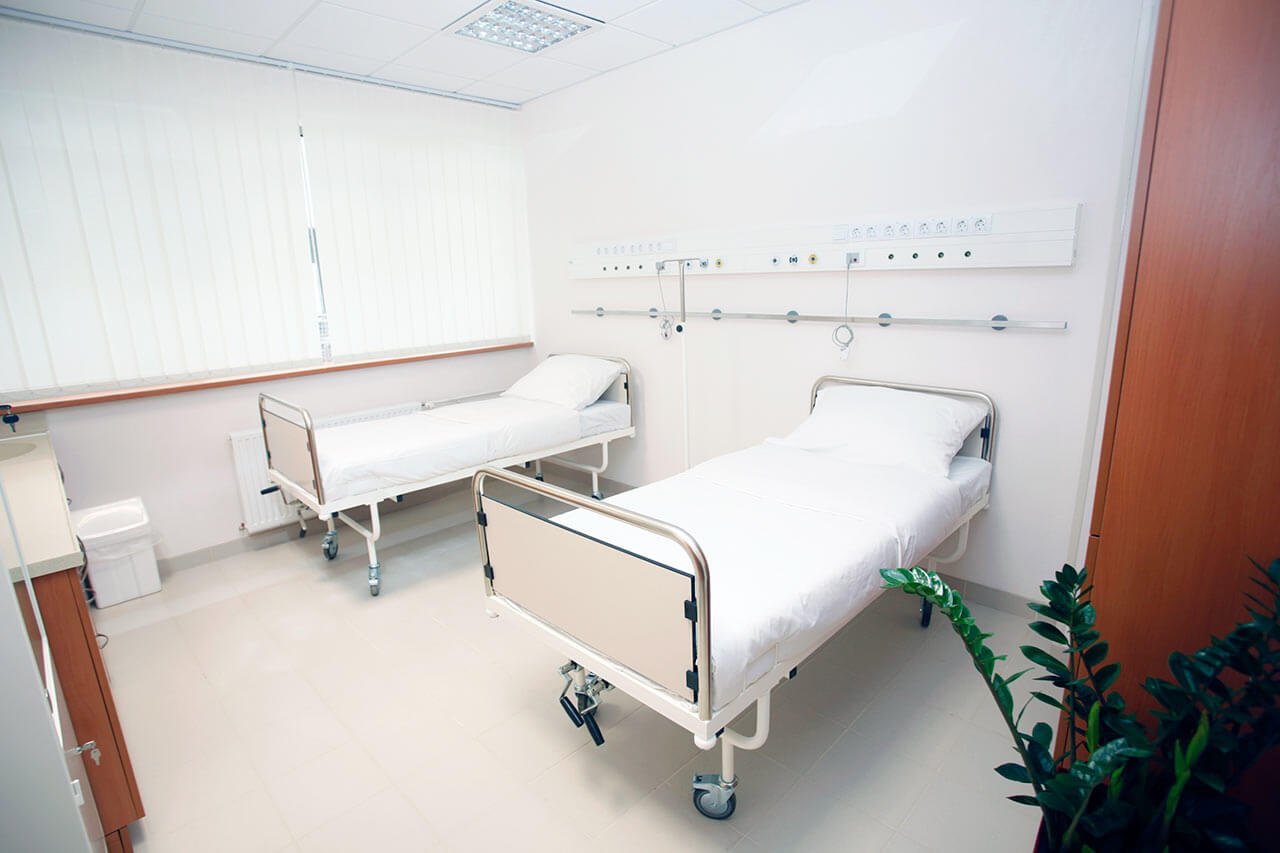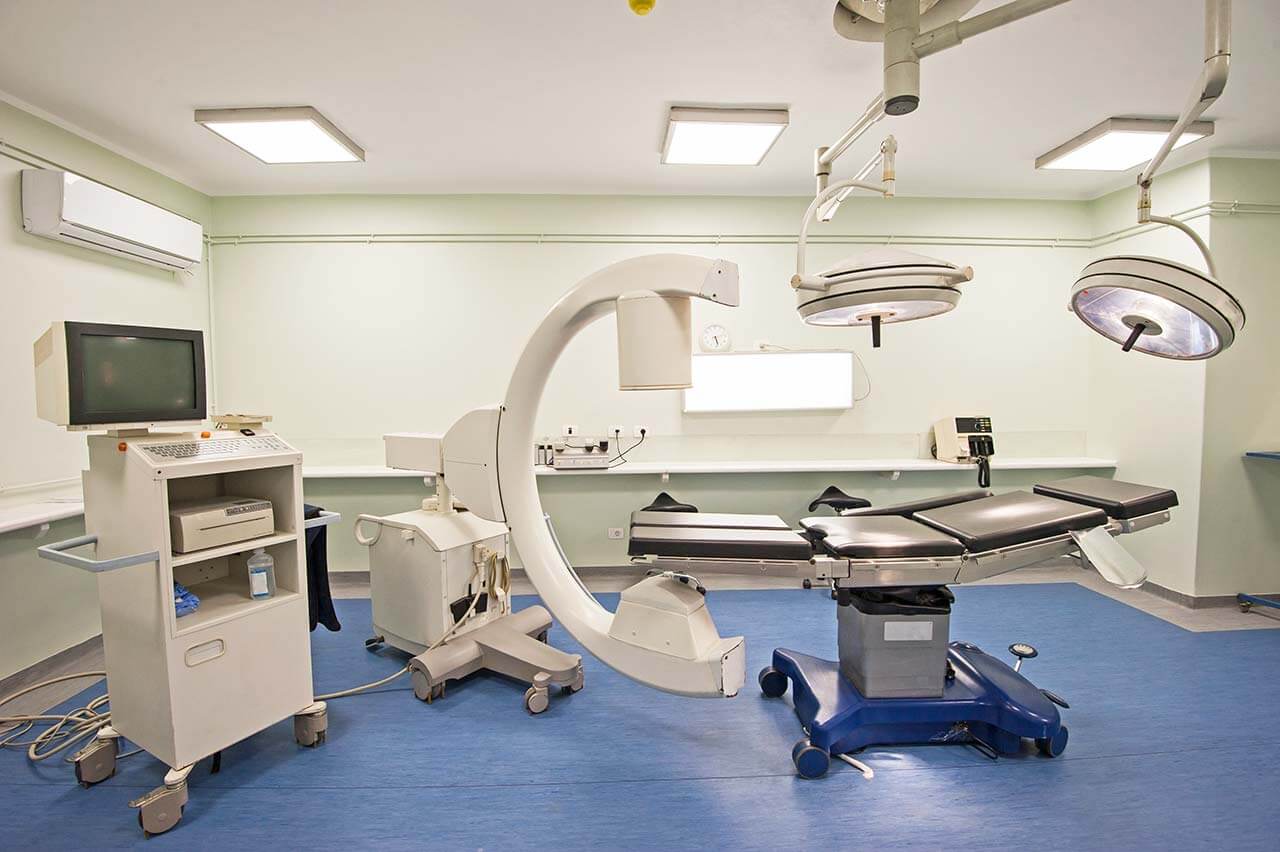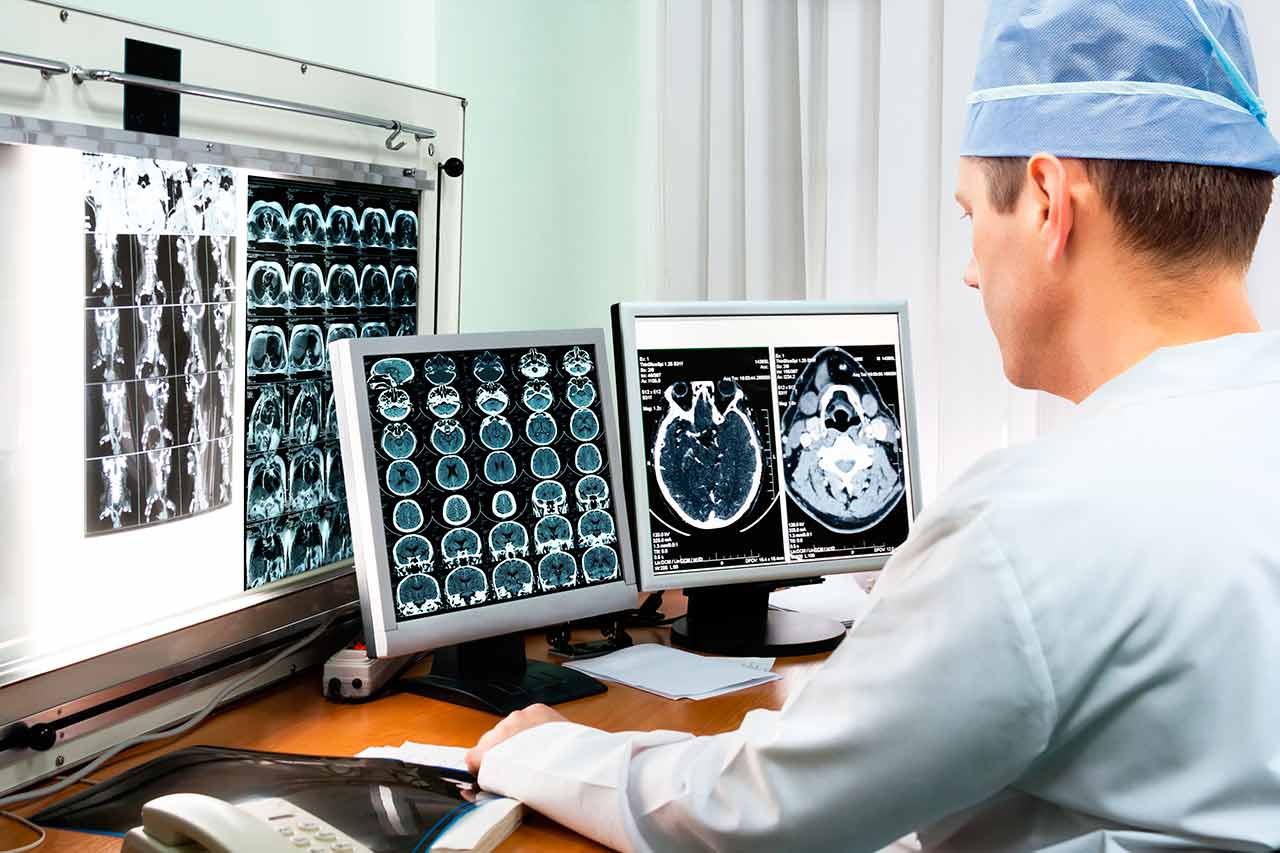
The program includes:
- Initial presentation in the clinic
- clinical history taking
- review of medical records
- physical examination
- laboratory tests:
- complete blood count
- general urine analysis
- biochemical analysis of blood
- TSH-basal, fT3, fT4
- tumor markers
- inflammation indicators (CRP, ESR)
- indicators of blood coagulation
- abdominal ultrasound scan
- CT scan/MRI or PET-CT of abdomen
- preoperative care
- cytoreductive surgery to remove visible tumors
inside the abdomen and HIPEC - histological and immunohistochemical
examination of removed tissues - symptomatic treatment
- cost of essential medicines
- nursing services
- stay in the hospital with a full board
- accommodation in a 2-bedroom ward
- elaboration of further recommendations
How program is carried out
During the first visit, the physician will conduct a clinical examination and go through the results of the available diagnostic tests. After that, you will undergo the necessary additional examination, such as the assessment of liver and kidney function, ultrasound scan and tomography of the abdominal organs. Based on the results of the examination, the physician will choose the surgical technique and the type of anesthesia. After that, preparation according to the preoperative standard will start.
Cytoreductive surgery begins with general anesthesia. The intervention is performed as open surgery, i.e. through the incision in the anterior abdominal wall, so that the surgeon can carefully examine the peritoneum and the surface of the abdominal organs. The surgeon removes affected by the malignant process areas of the peritoneum and metastases in other internal organs. This stage of the operation can take several hours, since the overall effectiveness of the treatment depends on the completeness of the malignant tissues removal.
At the next stage of the operation, the surgeon inserts several catheters into the abdominal cavity. Through the catheters, a heated solution of a chemotherapy drug is pumped inside. The special system maintains the required temperature (42-43 degrees Celsius), pressure and circulation rate of the medicinal solution. The solution mechanically flushes out blood clots and remnants of malignant tissues, and a heated chemotherapy drug destroys micrometastases in internal organs and lymph nodes (micrometastases can’t be detected by the naked eye).
After 1-1.5 hours, the chemotherapy drug is removed from the abdominal cavity and the abdominal cavity is washed with saline. After that, the surgeon removes the catheters and sutures the incision of the anterior abdominal wall.
After the completion of the operation, you will be transferred to the ward of the intensive care unit, under the round-the-clock supervision of doctors and nurses. In 1-3 days after the operation, your drains will be removed and you will be transferred to a regular ward for further recovery. The whole treatment takes 10-12 days on average.
Finally, the attending physician will evaluate the results of control examinations, schedule the date of discharge from the hospital and give you detailed recommendations for further follow-up and treatment.
Required documents
- Medical records
- X-ray examination, MRI/CT scan (if available)
- Pleural biopsy (if available)
Service
You may also book:
 BookingHealth Price from:
BookingHealth Price from:
About the department
According to the Focus magazine, the Department of Cardiac Surgery, Adult and Pediatric Thoracic Surgery at the University Hospital Muenster ranks among the top German medical facilities specializing in cardiac surgery!
The department offers the full range of surgical treatment of diseases of the heart, lungs, thoracic organs, mediastinum and diaphragm, including heart and lung transplantation. With appropriate indications, the operations are performed using sparing minimally invasive techniques. The department's surgeons perform more than 3,000 surgical interventions annually, 200 of them using a heart-lung machine. The department is headed by Prof. Dr. med. Sven Martens.
All heart surgeries are carried out in accordance with the very latest standards and with the use of advanced surgical technologies. Obviously, before the operation, the patient undergoes a comprehensive diagnostics, during which the necessary specialists in cardiology, including external partners, may be involved.
Particularly important attention in cardiac surgery is given to the protection of the brain, which is facilitated by the use of modern monitoring systems. The heart valve diseases may be treated with the use of innovative reconstructive techniques, which allow to preserve the valve. Coronary artery bypass grafting is carried out with or without heart-lung machine, but the preference is given to interventions on the beating heart.
Also, the department's surgeons widely apply sparing minimally invasive techniques, which are characterized by low trauma and speedy patient recovery. The department's specialists have a unique experience in the treatment of heart tumors. The service range is complemented by heart transplantation, which is performed in the lack of positive dynamics from conservative treatment of heart failure. The decision on heart transplantation is preceded by numerous consultations with the patient and his relatives, extensive diagnostics.
In the field of thoracic surgery, of particular interest is the treatment of lung cancer and the removal of lung metastases. As part of the Comprehensive Cancer Center Muenster, the department has all the effective diagnostic and therapeutic techniques in order to ensure the best treatment outcome of oncopathology. The department's doctors also specialize in lung transplantation. In addition, the thoracic surgeons of the department have extensive experience in thoracic surgery in children of different age groups.
The department’s clinical focuses include:
- Heart surgery
- Surgical treatment of heart valve diseases, including reconstructive interventions with valve preservation
- Coronary artery bypass grafting (with and without heart-lung machine)
- Minimally invasive heart surgery
- Treatment of heart tumors
- Surgical treatment of chronic heart failure (up to heart transplantation)
- Implantation of mechanical circulatory support systems (ECLS, LVAD), including artificial heart implantation
- Implantation of pacemakers and defibrillators
- Adult and pediatric thoracic surgery
- Surgical treatment of lung, mediastinal and other thoracic tumors
- Removal of lung metastases
- Treatment of aortic aneurysm
- Lung transplantation
- Other medical services
Curriculum vitae
In November 2011, Prof. Dr. med. Sven Martens held the position of the Head of the Department of Cardiac Surgery, Adult and Pediatric Thoracic Surgery at the University Hospital Muenster. Previously, the doctor held the position of the Deputy Head and Leading Senior Physician in the Department of Cardiac Surgery at the University Hospital Frankfurt. The areas of specialization of Dr. Martens in surgery include minimally invasive heart valve surgery, including valve preservation, coronary artery bypass grafting, also on the beating heart. The research is mainly devoted to the search for new treatment methods aimed at the reduction of the potential load on the body and brain in elderly patients during complex heart surgeries.
Photo of the doctor: (c) Universitätsklinikum Münster
About hospital
According to the Focus magazine, the University Hospital Muenster ranks among the top German hospitals!
The hospital belongs to the most prestigious medical institutions in Germany. The hospital is distinguished by a high professionalism of its doctors, state-of-the-art technological equipment and the availability of the most advanced diagnostic and therapeutic capabilities ensuring the first-class medical services. The hospital integrates more than 30 specialized departments, as well as numerous institutes and centers, thus representing all the specialties of modern medicine. The hospital treats more than 64,000 inpatients and 500,000 outpatients every year, which is an indisputable evidence of the highest quality of medical services.
The medical team of the hospital, consisting of more than 10,000 employers, is committed to preserving the physical health of patients, providing them with psychological support and compassionate attitude throughout the entire therapeutic process.
The hospital has succeeded in all specialties of medicine, however, main areas of its specialization include oncology, treatment of cardiovascular, neurological diseases, transplant medicine, psychiatry and psychosomatics, pediatrics with a special focus on rare diseases in children, traumatology, orthopedics, prenatal medicine, and reproductive medicine. In addition, key importance is given to scientific research and training of medical students, so that the specialists of the hospital make a momentous contribution to the development of medicine as a whole.
Photo: (с) depositphotos
Accommodation in hospital
Patients rooms
The patients of the University Hospital Muenster live in single or double rooms. The rooms are made in bright colors and modern design. Each room has an ensuite bathroom with shower and toilet. The standard room includes an automatically adjustable bed, a bedside table, a table and chairs for receiving visitors, a telephone and a TV. The hospital offers access to the Internet. If desired, the patient can also stay in the enhanced-comfort room.
Meals and Menus
The patients of the hospital are offered a tasty and balanced three meals a day: breakfast, lunch and dinner. The menu always features diet and vegetarian dishes. If for any reason you do not eat all the food, you will be provided with an individual menu. Please inform the medical staff about your dietary preferences prior to the treatment.
Further details
Standard rooms include:
Religion
Religious services are available upon request.
Accompanying person
During the inpatient program, an accompanying person may stay with you in a room or at the hotel of your choice.
Hotel
During the outpatient program, you can live at a hotel of your choice. Managers will help you to choose the most suitable options.
The hospital offers a full range of laboratory tests (general, hormonal, tests for infections, antibodies, tumor markers, etc.), genetic tests, various modifications of ultrasound scans, CT scans, MRI and PET / CT, angiography, myelography, biopsy and other examinations. Treatment with medications, endoscopic and robotic operations, stereotaxic interventions is carried out here, modern types of radiation therapy are also used. The hospital offers patients all the necessary therapeutic techniques.
- Stereotactic radiotherapy, including intracranial one
- Thulium and holmium laser enucleation of the prostate
- HIPEC for peritoneal cancer
- Imlantation of mechanical heart support systems
- Assisted reproductive technologies
These are arthrosis and sports injuries of the joints, benign neoplasms and malignant tumors of various localizations, spinal injuries, osteoporosis, benign prostatic hyperplasia, urolithiasis, inflammatory bowel disease and other pathologies.
- Traumatology and hand surgery
- Urology
- General and abdominal surgery
- Cardiology and cardiac surgery
- Obstetrics and gynecology
The hospital's team consists of more than 10,000 highly qualified employees.






